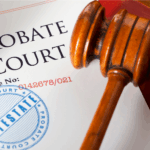
Published on October 14, 2020. Last Updated on October 28, 2025.
As an elder law attorney, one of the most common questions I hear is, “What kind of estate planning do I really need?”
The truth is that no two estate plans are the same. Each person’s goals, family circumstances, and financial situation shape the details. However, there are a few core legal documents that everyone, regardless of age, income, or health, should have in place.
These documents form the foundation of every solid estate plan. They protect you during your lifetime, guide your loved ones if you become incapacitated, and ensure your wishes are carried out after your death. Without them, your family could face unnecessary financial complications or court involvement at an already difficult time.
Let’s walk through the essential components of a complete estate plan, why each is important, and how they work together to safeguard your future.
1. A Last Will and Testament
A last will and testament is the cornerstone of most estate plans — and for good reason. It’s your opportunity to maintain control over what happens to your assets after your death.
Your will allows you to:
- Designate who receives your property and assets.
- Appoint an executor to handle your estate.
- Name a guardian for minor children.
It’s important to understand that a will governs only probate assets — property held solely in your name without a designated beneficiary. For example, your house, car, or personal belongings typically pass through your will.
However, assets with joint ownership or beneficiary designations, such as retirement accounts or life insurance, pass directly to the named individuals. This means if your will leaves everything to your spouse but your life insurance still names a former partner, the insurance company must legally pay the named beneficiary, even if your will says otherwise.
Without a valid will, your state’s intestacy laws decide who inherits your estate — and that may not align with your wishes. For example, unmarried partners, stepchildren, or close friends typically receive nothing under intestacy laws. A well-drafted will ensures your property passes the way you intend and that the right person manages your estate.
2. Financial Durable Power of Attorney
A Financial Durable Power of Attorney (POA) gives someone you trust the authority to manage your finances if you become unable to do so. This could include paying bills, managing investments, selling property, or handling taxes.
The term “durable” means the power continues even if you become incapacitated. You can also decide when the authority begins — immediately upon signing, or only if a doctor determines you are unable to manage your affairs.
Why does this matter? Without a durable POA, your family may need to go through the court process of guardianship or conservatorship to handle your finances. That process is often time-consuming, costly, and emotionally draining.
For instance, one of my clients — a retired teacher — suffered a stroke and was unable to handle her bills or bank accounts. Because she didn’t have a financial power of attorney, her daughter had to petition the court for guardianship, which took nearly three months and thousands of dollars in legal fees. Had a POA been in place, her daughter could have immediately stepped in to keep her mother’s finances stable.
By signing a durable financial POA in advance, you ensure that someone you trust can step in seamlessly if needed, without court involvement.
3. Health Care Power of Attorney and Living Will
A Health Care Power of Attorney (also called a medical proxy) designates a trusted person to make medical decisions on your behalf if you’re unable to communicate your wishes. Your chosen person — called your health care agent — can talk with doctors, access medical records, and make treatment decisions consistent with your values and preferences.
Often, this document is paired with a Living Will or Advance Health Care Directive, which outlines your wishes regarding life-sustaining treatments, such as:
- Use of ventilators or feeding tubes
- Pain management preferences
- Organ donation
- Resuscitation decisions (DNR orders)
Together, these documents ensure your medical wishes are respected and your loved ones aren’t left making difficult choices under stress.
For example, one family I worked with had never discussed end-of-life wishes. When their father fell critically ill, his children disagreed about whether to continue life support. It caused painful family conflict at an already emotional time. If their father had completed a Living Will and appointed a health care proxy, his wishes would have been clear, and the family spared that anguish.
It’s also worth noting that your health care agent and financial agent don’t have to be the same person. Many people choose different individuals based on who is best suited for each role.
4. Reviewing Beneficiary Designations
One of the most common — and costly — estate planning oversights involves outdated beneficiary designations on accounts such as:
- Life insurance policies
- Retirement accounts (IRAs, 401(k)s, 403(b)s)
- Annuities
- Transfer-on-death (TOD) or payable-on-death (POD) accounts
These assets bypass your will entirely and go directly to the listed beneficiaries. That’s why keeping them updated is critical.
This mistake was made by one of my past clients whose ex-husband remained the listed beneficiary on her 401(k) despite her having remarried years earlier. When she passed away unexpectedly, the entire account legally went to her ex-spouse — not her current husband — because the plan administrator was bound by the designation on file.
To avoid such outcomes, review beneficiary designations every few years and after major life events such as marriage, divorce, or the birth of a child. Your designations, will, and any trust should all work together to reflect a unified plan.
5. Guardianship Designation for Minor Children
If you have children under 18, your estate plan should include a guardianship designation. List the names of those who will care for your children if something happens to you before they reach adulthood. Without a written designation, a court will decide who raises your children — and that decision may not reflect your wishes.
It’s best to name both a primary guardian and an alternate guardian in case your first choice cannot serve. This gives the court clear direction and minimizes family disputes. Choosing a guardian can be emotional, but it’s one of the most loving steps you can take as a parent. It ensures your children are cared for by someone who shares your values, lifestyle, and parenting philosophy.
Why These Estate Planning Basics Matter
These core documents — your will, durable powers of attorney, health care directives, and beneficiary designations — form the foundation of a strong estate plan. Together, they:
- Ensure your assets are distributed according to your wishes.
- Empower trusted individuals to manage your affairs if you can’t.
- Protect your loved ones from unnecessary court involvement and stress.
Even if you think you “don’t have much,” estate planning is not just for the wealthy. It’s about control, protection, and peace of mind. These documents ensure your voice is heard and your loved ones have clear guidance during difficult times.
Updating Your Plan as Life Changes
Estate planning isn’t something you do once and forget. Life changes — and your plan should evolve with it.
You should review your plan every few years or after major events, such as:
- Marriage or divorce
- Birth or adoption of a child or grandchild
- Death or incapacity of a named agent or beneficiary
- Major financial changes (inheritance, sale of property, retirement)
- Relocation to another state (since laws vary by location)
When You May Need More Advanced Planning
While these five basic documents cover most people’s needs, some situations require more advanced tools, such as:
- Revocable Living Trusts for privacy and probate avoidance
- Irrevocable Trusts for asset protection and Medicaid planning
- Special Needs Trusts for beneficiaries with disabilities
- Charitable Trusts or Tax Planning Strategies for large estates
For instance, a family business owner may need a succession plan to ensure smooth operations if something happens to them. Or a parent with a child who has special needs might establish a trust to provide long-term financial security without jeopardizing government benefits.
Working with an experienced estate planning or elder law attorney helps identify which strategies best fit your goals.
Common Estate Planning Mistakes to Avoid
Even with the best intentions, mistakes happen. Some of the most common include:
- Failing to sign or properly execute documents.
- Forgetting to update documents after major life changes.
- Naming co-agents or co-executors who may not cooperate.
- Creating a trust but failing to transfer assets into it (“funding” the trust).
- Overlooking digital assets — such as online accounts, passwords, and cryptocurrency.
- Not communicating your wishes to your family or agents.
These errors can undermine your plan’s effectiveness. Avoid them by reviewing your documents regularly and seeking professional guidance before making significant updates.
Get the Support You Need from Bellomo & Associates
Estate planning doesn’t have to feel overwhelming — but it does have to be done right. At Bellomo & Associates, our experienced elder law and estate planning attorneys work closely with individuals and families to create customized plans that protect what matters most.
From drafting or updating your last will and testament to developing comprehensive strategies for long-term care, Medicaid, and trusts, our team ensures that every aspect of your plan is thoughtfully designed and legally sound.
Whether you’re creating your first estate plan or revisiting an existing one, we’re here to guide you with clarity, compassion, and confidence. Contact Bellomo & Associates today to schedule a consultation. It’s never too early — or too late — to protect your future and give your family lasting peace of mind.


